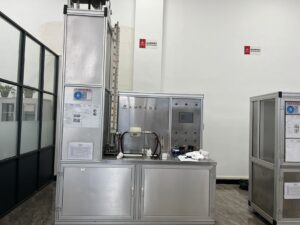High-performance filters are becoming indispensable in modern vehicles, not only for improving engine efficiency but also for enhancing fuel economy and extending vehicle lifespan. As engines become more sophisticated and environmental standards tighten, high-performance filters are now critical for maintaining optimal performance. This article examines how high-performance filters work, their major advantages, applications, and crucial maintenance practices.
1. How High-Performance Filters Work
Filters are engineered to trap impurities in the air, fuel, and oil entering the engine, helping to keep its components clean and running efficiently. Unlike standard filters, these filters use dense, multi-layered filtration materials, sometimes enhanced with synthetic fibers or nanofiber technology, to capture even the finest particles. Despite their density, they are designed to maintain high airflow, allowing for smoother fuel combustion. This precise balance of filtration and airflow ensures that the engine remains both clean and efficient, reducing wear and maximizing power output.
2. Advantages of High-Performance Filters
High-performance filters provide significant benefits, from improved engine output to reduced environmental impact.
1.Increased Engine Power: High-performance air filters enable better airflow to the engine. By allowing more oxygen into the combustion chamber, these filters boost combustion efficiency and increase power output. This is particularly noticeable in high-revving scenarios, such as during acceleration, where high-performance filters can make a tangible difference in vehicle responsiveness.
2.Better Fuel Economy: Improved filtration reduces strain on the engine, allowing it to operate more efficiently. Clean air and fuel flow freely, reducing fuel consumption for the same power output. For drivers, this translates to significant fuel savings over time. Moreover, cleaner fuel injection systems contribute to more consistent fuel use, eliminating unnecessary consumption due to blocked filters or contaminants.
3.Extended Engine Life: High-performance filters protect the engine by trapping more dirt, debris, and metal particles that could otherwise enter and wear down critical components. This extra layer of protection leads to fewer repairs, reduced downtime, and a longer overall lifespan for the engine, making high-performance filters particularly valuable for high-mileage or high-demand vehicles.
4. Environmental and Sustainability Benefits: Many high-performance filters are made to be washable and reusable, allowing drivers to clean and reuse them for a longer period compared to disposable filters. By reducing the frequency of replacements, reusable filters cut down on waste and support sustainable vehicle maintenance practices. Additionally, cleaner engines produce fewer emissions, aligning with current environmental regulations and helping to reduce the vehicle’s carbon footprint.
5. Lower Long-Term Maintenance Costs: The superior filtration provided by high-performance filters helps prevent buildup and corrosion within the engine, cutting down on costly repairs and maintenance. Although they may come with a higher initial cost, the long-term savings in fuel and maintenance often outweigh this, providing value over time.
3. Application Areas for High-Performance Filters
Filters are especially beneficial for vehicles that require high engine output, regular heavy-duty use, or operate in demanding environments. Key application areas include:
– High-Performance Vehicles: Sports cars, SUVs, and motorcycles commonly use filters to optimize power and acceleration. In these vehicles, maximizing airflow can significantly enhance performance, especially at high speeds.
-Off-Road and Heavy-Duty Vehicles: Off-road vehicles, construction machinery, and agricultural equipment often work in environments filled with dust, dirt, and other airborne particles. High-performance filters offer superior contaminant filtration, ensuring that engines remain clean and functional even in tough conditions.
– Tuning and Racing Vehicles: In motorsport and tuning, maximizing airflow to the engine is crucial for achieving peak performance. High-performance filters are a staple in racing setups, where optimal combustion and high RPM output are essential for success.
4. Maintenance Tips and Usage Considerations for Filters
To maximize the benefits of high-performance filters, proper care and maintenance are essential. Here are some key points to keep in mind:
1. Routine Inspection and Cleaning: All filters are often washable and can be reused multiple times. Routine cleaning is essential to prevent buildup and maintain optimal airflow. Generally, manufacturers recommend cleaning filters every 5,000 to 10,000 miles, depending on driving conditions. In dusty environments, more frequent cleaning may be necessary.
2. Choosing High-Quality Filters: The market for filters includes many options, with varying levels of quality. Investing in filters from reputable brands ensures that the product meets high filtration and durability standards. For instance, Arrowfilters rigorously tests its products in laboratory conditions before release to ensure consistent performance and reliability.

3. Correct Installation: Proper installation is essential to ensure that high-performance filters function correctly. Incorrect installation can lead to air or fuel leaks, reduced filtration efficiency, or even damage to engine components. It’s recommended to follow the manufacturer’s guidelines carefully or to consult a professional if necessary.
4. Follow Manufacturer’s Guidelines:filters have varying cleaning and replacement intervals based on brand and type. Arrow, for example, recommends changing oil filters every 5,000-8,000 km, air and cabin filters every 10,000-20,000 km, and fuel filters every 10,000 km. Environmental factors and personal driving habits can affect these intervals, so inspecting the filter’s condition is always a good practice.
5. Use Compatible Cleaning Products: Using the correct cleaning agents and methods for washable filters is essential. Many filters come with specific cleaning kits designed to clear contaminants without damaging the filtration material. Following these instructions helps maintain the filter’s effectiveness over time.
5. Conclusion
High-performance filters offer numerous advantages, from enhanced airflow and fuel efficiency to better engine protection and environmental benefits. For drivers seeking to optimize their vehicle’s performance,filters represent a smart investment. Proper maintenance and adherence to usage guidelines ensure these filters deliver maximum value, resulting in a smoother, more economical driving experience with reduced maintenance costs.filters are thus a powerful tool for achieving both immediate and long-term benefits in engine efficiency, fuel economy, and sustainability.


